Third plenary session of the 11th CPPCC Inner Mongolia Committee opens
The third plenary session of the 11th CPPCC Inner Mongolia Committee opened in Hohhot on Jan 25.
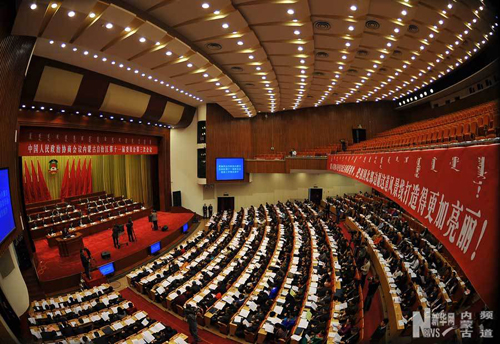 |
|
The third plenary session of the 11th CPPCC Inner Mongolia Committee is opened in Hohhot on Jan 23. [Photo/Xinhua] |
Party, government and military officials, including Wang Jun, Bater, Che Huasong, Yang Junxing, Li Jia, Zhang Li, Wu Lan, Li Pengxin, Fu Taizeng, Bu Xiaolin, Du Zi and Wang Zhonghe, attended the meeting and sat on the rostrum. A total of 485 CPPCC Inner Mongolia committee members were present at the meeting.
According to the meeting, a total of 867 proposals have been made since the second session of the 11th CPPCC Inner Mongolia Committee, including 845 ones put forward at the committee conferences. A total of 759 proposals were put on record after review.
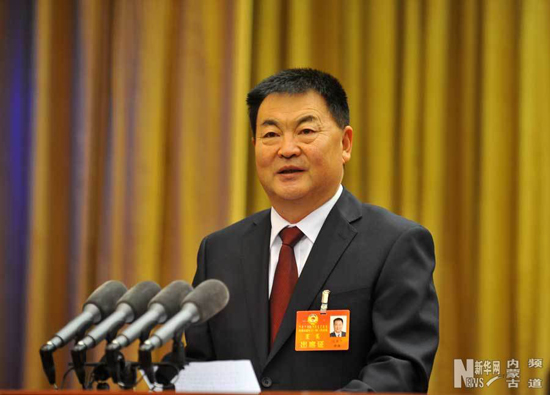 |
|
Ren Yaping, chairman of the CPPCC Inner Mongolia Committee gives a work report at the third plenary session of the 11th CPPCC Inner Mongolia Committee on Jan 25. [Photo/Xinhua] |
Committee members contributed 564 proposals, with a 69.52 percent participation rate. The democratic Party district committee and local industry and commerce association made 181 proposals. Special committee members of the CPPCC Inner Mongolia put forward nine proposals.
The 369 proposals aiming to strengthen and improve macroeconomic regulation and control, speed up industrial structure adjustment, promote coordinated development of regional economy and the integration of urban and rural development, and enhance ecological civilization building offered reference for the important decisions of the autonomous region’s Party committee and government and the implementation of the local development strategy.
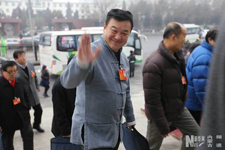 |
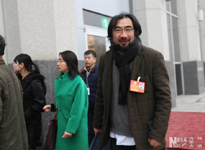 |
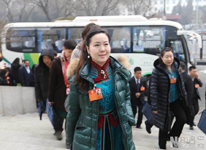 |
A snapshot of the third session of the 11th CPPCC Inner Mongolia Committee on Jan 25.
The 215 proposals on education, health and social security actually reflected the public desire and appeal and received attention of the relevant departments. The 175 proposals to improve construction of the socialist legal system with Chinese characteristics; strengthen social management, comprehensive administration, clean government building and work style transformation; and boost social harmony and stability received special attention from their undertakers, who would use the proposals to maintain close ties with the public and solve relevant problems.
At the moment, proposals on record have all been dealt with, and 19.6 percent of them have been addressed. The rest were either solved in a large part, put on a plan, or planned to be accepted. Proponents of some proposals that were too forward-looking and couldn’t be implemented in the short term due to circumstances also received explanations.
Edited by Michael Thai



 Print
Print Mail
Mail





